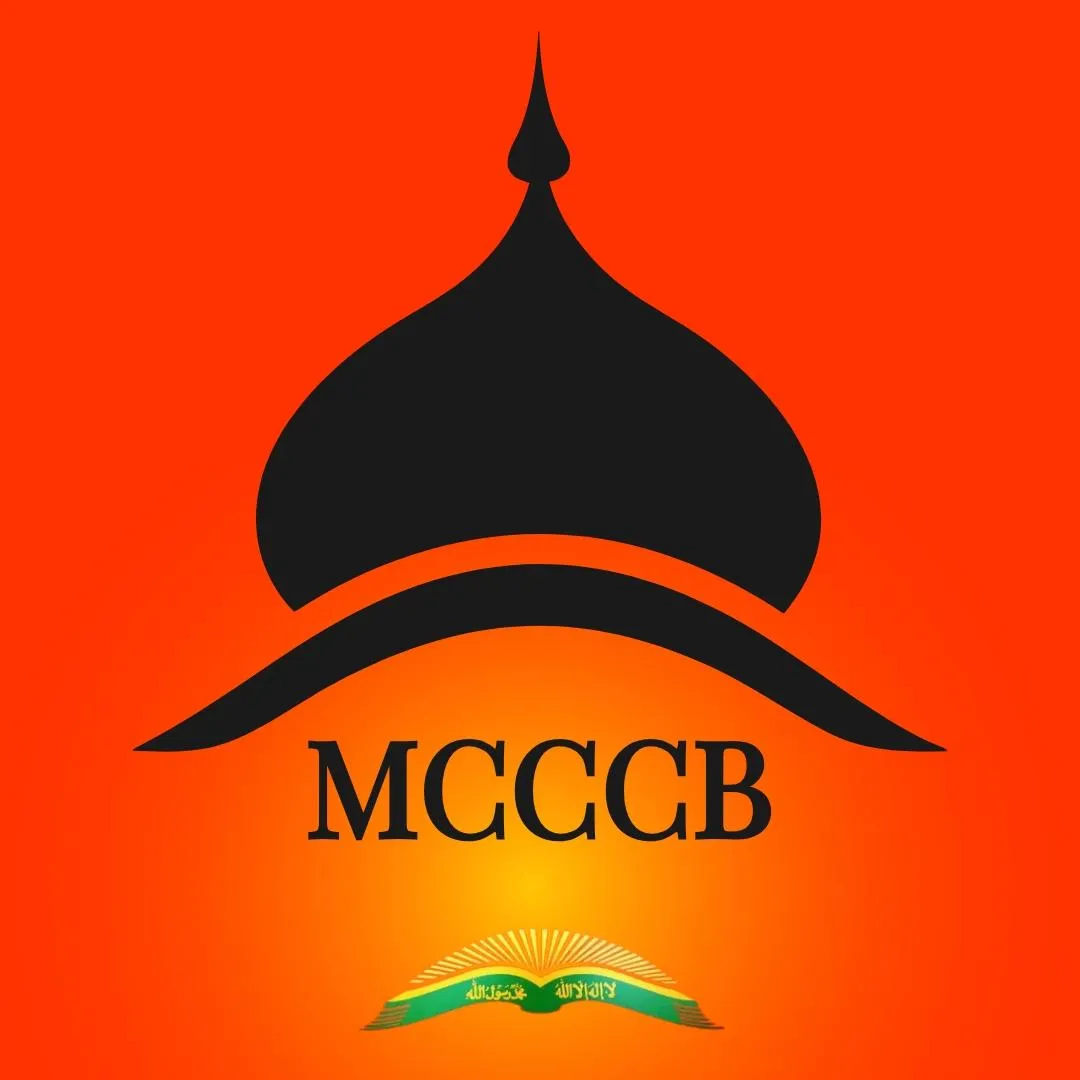Al-Islam's Universal Beliefs
Allah is The Creator with no partners. Muslims have 99 Popular Attributes for Allah.
What is Al-Islam?
Al-Islam is the complete way of life that reflects Submission to the Will of G-d. Islam means "submission," derived from the Arabic word "Salaam," meaning "peace."
What is Al-Islam?
Al-Islam is the complete way of life that reflects Submission to the Will of G-d. Islam means "submission," derived from the Arabic word "Salaam," meaning "peace."
Who is a Muslim?
A Muslim is anyone who submits to the Will of G-d. Everyone is born "Muslim, and their environment makes them otherwise."
Who is a Muslim?
A Muslim is anyone who submits to the Will of G-d. Everyone is born "Muslim, and their environment makes them otherwise."
How does one become a conscious Muslim?
To become Muslim is to make a public declaration that "there is no god but Allah (One G-d), and that Muhammad is the Messenger of G-d." This is called the Shahadatain.
How does one become a conscious Muslim?
To become Muslim is to make a public declaration that "there is no god but Allah (One G-d), and that Muhammad is the Messenger of G-d." This is called the Shahadatain.
Who is Muhammad?
Muhammad the Prophet was born in Mecca, the holiest city to Islam in Arabia in the year 570 or in the 6th Century.
Who is Muhammad?
Muhammad the Prophet was born in Mecca, the holiest city to Islam in Arabia in the year 570 or in the 6th Century.
How many Muslims are there?
Worldwide there are just over 1 billion Muslims, or one out of every five people on earth is a Muslim. In the United States, there are approximately 8 million Muslims; 2.5 million are recognized as indigenous, with the remainder by way of immigration.
How many Muslims are there?
Worldwide there are just over 1 billion Muslims, or one out of every five people on earth is a Muslim. In the United States, there are approximately 8 million Muslims; 2.5 million are recognized as indigenous, with the remainder by way of immigration.
Aren't all Muslims Arabs?
No. Most Muslims live east of Karachi; 30% of Muslims live in the Indian subcontinent; 20% in Sub-Saharan Africa, 17% in Southeast Asia, 18% in the Arab world; 10% in the states of the former Soviet Union/Russia. There is a significant Muslim population in China, Latin America and Australia. Aren't all Arabs "Muslims"? No.
Aren't all Muslims Arabs?
No. Most Muslims live east of Karachi; 30% of Muslims live in the Indian subcontinent; 20% in Sub-Saharan Africa, 17% in Southeast Asia, 18% in the Arab world; 10% in the states of the former Soviet Union/Russia. There is a significant Muslim population in China, Latin America and Australia. Aren't all Arabs "Muslims"? No.
What is the Ka'bah?
The Ka'bah is the Ancient House in Mecca, Saudi Arabia, toward which all Muslims all over the world turn as their direction for making prayer. It is the House built by Prophet Ibrahim (Abraham) and his son and Prophet, Isma'il (Ishmael). It is built on the location where G-d told Ibrahim to summon all mankind to visit this place; it is believed to be the original site of a sanctuary established by Adam.
What is the Ka'bah?
The Ka'bah is the Ancient House in Mecca, Saudi Arabia, toward which all Muslims all over the world turn as their direction for making prayer. It is the House built by Prophet Ibrahim (Abraham) and his son and Prophet, Isma'il (Ishmael). It is built on the location where G-d told Ibrahim to summon all mankind to visit this place; it is believed to be the original site of a sanctuary established by Adam.
What are the Sunnah & Hadith?
Prophet Muhammad was described by his wife, Aishah, as the Qur'an walking and his life examples and practices constitute the second most important source for Muslims. These life examples are called Sunnah and are compiled in Hadith.
What are the Sunnah & Hadith?
Prophet Muhammad was described by his wife, Aishah, as the Qur'an walking and his life examples and practices constitute the second most important source for Muslims. These life examples are called Sunnah and are compiled in Hadith.
What are the Five Pillars of
Al-Islam?
The Ka'bah is the Ancient House in Mecca, Saudi Arabia, toward which all Muslims all over the world turn as their direction for making prayer. It is the House built by Prophet Ibrahim (Abraham) and his son and Prophet, Isma'il (Ishmael). It is built on the location where G-d told Ibrahim to summon all mankind to visit this place; it is believed to be the original site of a sanctuary established by Adam.
What are the Five Pillars of Al-Islam?
The Ka'bah is the Ancient House in Mecca, Saudi Arabia, toward which all Muslims all over the world turn as their direction for making prayer. It is the House built by Prophet Ibrahim (Abraham) and his son and Prophet, Isma'il (Ishmael). It is built on the location where G-d told Ibrahim to summon all mankind to visit this place; it is believed to be the original site of a sanctuary established by Adam.
What else do Muslims believe?
Muslims believe in all of G-d's prophets from Adam down through the chain of prophets to Muhammad, the last. Muslims believe in all the Scriptures that the Prophets came with from G-d including the Torah (of Moses) and the Gospel (of Jesus). Muslims believe in the Angels, the most notable in the Qur'an being Jibril (Gabriel). Muslims believe in Life after Death or the Resurrection. Muslims believe in the Day of Judgement, when everyone will be called to recon for their deeds before G-d.
What else do Muslims believe?
Muslims believe in all of G-d's prophets from Adam down through the chain of prophets to Muhammad, the last. Muslims believe in all the Scriptures that the Prophets came with from G-d including the Torah (of Moses) and the Gospel (of Jesus). Muslims believe in the Angels, the most notable in the Qur'an being Jibril (Gabriel). Muslims believe in Life after Death or the Resurrection. Muslims believe in the Day of Judgement, when everyone will be called to recon for their deeds before G-d.
What is Jumuah?
Jumuah litterally means in Arabic "congregation" and it is the most important day of all days to Muslims. Jumuah Prayer is on every Friday, just past midday.
What is Jumuah?
Jumuah litterally means in Arabic "congregation" and it is the most important day of all days to Muslims. Jumuah Prayer is on every Friday, just past midday.
What is Eid?
Eid in Arabic literally means "recurring happiness." There are two celebrations every year observed by all Muslims. Eidul Fitr celebrating the completion of Ramadan and Eidul Adha celebrating the completion of Hajj (pilgrimage). Eidul Adha the "Celebration of Sacrifice" is the greater Eid and it also commemorates Prophet Ibrahim's devotion to G-d and willingness to sacrifice his son Is'mail (Ishmael).
What is Eid?
Eid in Arabic literally means "recurring happiness." There are two celebrations every year observed by all Muslims. Eidul Fitr celebrating the completion of Ramadan and Eidul Adha celebrating the completion of Hajj (pilgrimage). Eidul Adha the "Celebration of Sacrifice" is the greater Eid and it also commemorates Prophet Ibrahim's devotion to G-d and willingness to sacrifice his son Is'mail (Ishmael).
What is G-d?
Imam W. Deen Mohammed, leader of the largest indigenous group of Muslims, explained that in order to show our reverence to the Name of G-d Almighty, that we not use any spelling that could in the reverse mean "dog."
What is G-d?
Imam W. Deen Mohammed, leader of the largest indigenous group of Muslims, explained that in order to show our reverence to the Name of G-d Almighty, that we not use any spelling that could in the reverse mean "dog."
Subscribe to our newsletter
Get notified of new products, services, educational information, and promotions directly to your inbox.
Latest News
Stay Informed. Stay Connected.
Catch up on the latest updates from MCCCB, including upcoming events, community initiatives, and restoration progress.

Ensuring Security in Remote Online Notarization: Advanced Measures You Need to Know
Remote online notarization is revolutionizing the notarial process, offering convenience and efficiency to those with busy schedules or a need for remote services. To ensure the integrity and confidentiality of this advanced method, implementing stringent security measures is paramount. From robust identity verification protocols to the use of encryption, audit trails, tamper-evident technology, and notary oversight, the remote online notarization security landscape is evolving rapidly. In this article, we delve into five advanced measures crucial for safeguarding the remote online notarization process, providing valuable insights and practical tips for ensuring a safe and reliable experience for all involved.
Understanding Remote Online Notarization Security
The Role of Identity Verification in Remote Notary Safety
Identity verification is a cornerstone of remote online notarization security. When notarizations happen outside of the traditional face-to-face environment, the need for reliable identification becomes even more crucial. A remote notary must be able to confirm with a very high level of certainty that the person signing a document is who they claim to be. This is achieved through various advanced methods including: knowledge-based authentication (KBA), which involves a short five-question quiz and credential analysis which is an identification verification process that uses a scanner connected to your smartphone or biometrics analysis which is conducted through facial recognition. These tools compare the signer's provided information against trusted databases or use technology to match physical traits, such as a facial recognition scan against a photo ID. By utilizing these rigorous protocols, remote online notarization ensures that only authorized individuals can execute documents, significantly reducing the risk of fraud and maintaining the safety of the notarial process.
How Encryption Protects Remote Online Notarization
Encryption is a powerful tool for protecting the confidentiality and integrity of information during remote online notarization. It works by converting the original information into an unreadable format that can only be deciphered with a specific decryption key. This means that even if the data were intercepted during transmission, it would be useless to anyone without the correct decryption key. In remote notarizations, sensitive data such as personal information, signatures, and the documents themselves are encrypted, ensuring that they remain secure throughout the process. Strong encryption methods are standards for protecting online communications. By leveraging these encryption technologies, remote online notarization provides a robust defense against unauthorized access and tampering, ensuring that the notarization process is both safe and reliable.
Audit Trails: A Key Aspect of Remote Online Notarization Security
Audit trails are essential for maintaining a high level of security and accountability in remote online notarization. These detailed records provide a comprehensive log of the entire notarization process, capturing every action taken, including the identity verification steps, timestamp of the notarization, and the document access history. This level of tracking ensures that any changes or attempts at tampering can be detected and traced back to the source. Furthermore, audit trails are necessary for legal purposes, as they can serve as evidence to demonstrate compliance with notarial laws and regulations. They are a deterrent against fraudulent activities and help resolve disputes by providing a clear and indisputable record of the notarization. By preserving the integrity of the process, audit trails play an important role in the security framework of remote online notarization which is why The Signature Pros ensure that the signer(s) receive a copy of the audit trail with every notarization. Please note audit trails will vary in look and format depending on the remote online notarization platform the notary uses for the signer’s session.
Tamper-Evident Technology and Remote Notary
Tamper-evident technology is another critical component of ensuring the authenticity and integrity of documents in remote online notarization. This technology alerts both the notary and the document recipients if any unauthorized changes have been made to a document after the notarization has occurred. It often involves unique digital seals or certificates that are affixed to the document, creating a 'digital fingerprint'. If the document is altered in any way, the seal will show signs of tampering, indicating that the document may no longer be trustworthy. This serves not only as a preventive measure against fraud but also as a means to instill confidence in electronic documents. Tamper-evident technology is one of the many ways remote online notarization maintains the same level of security and trust as traditional, in-person notarizations.
Notary Oversight and its Relevance in Remote Online Notarization
Notary oversight is a vital part of ensuring compliance and security in remote online notarization. This involves the monitoring and regulation of notaries to guarantee they adhere to the strict standards set by their state notarial laws and regulations. Notary oversight helps to maintain a high level of professionalism and ethical conduct among notaries. It includes verifying that notaries are properly trained in the use of advanced technologies that remote notarization requires, such as the platforms that host the notarization sessions and the tools used for identity verification and document security.
Remote Online Notarization: A Legal Perspective in Maryland
In Maryland, the legal framework surrounding remote online notarization has been solidified through state legislation, recognizing and accommodating this contemporary approach to notarial procedures. The passing of Senate Bill 678 in 2019 has established a definitive legal foundation for the adoption of remote notarizations, enabling notaries within the state to offer their services electronically in concurrence with the time-established standards of traditional notarization. This pivotal legislation outlines the required technologies, the method for identity authentication, and the regulations for the preservation of electronic records.
However, it’s crucial to recognize that Maryland's legalization of remote online notarization does not automatically ensure the acceptance of such notarizations by all organizations that may request notarized documents. As a result, signers must confirm whether the organization receiving the notarized document will accept one executed via remote online notarization. By understanding these considerations and establishing acceptability in advance, notaries and participants in Maryland can proceed with confidence, backed by the assurance that the process is not only convenient and legally sound but also universally recognized and accepted by the intended recipients. Notaries are encouraged to communicate this consideration to their clients to ensure a seamless transaction with all entities involved.
Wrapping Up: Ensuring Security in Remote Online Notarization
The importance of security measures in remote online notarization can't be overstated. This modern approach to a time-honored service combines convenience and efficiency while adhering to the highest standards of security and integrity. It reflects a significant technological advancement, enabling notarizations to take place anytime and anywhere.
From the rigors of identity verification to the robustness of encryption methods, remote online notarization integrates advanced security features to maintain the highest level of safety and reduce the risk of fraud. Complementing these measures, audit trails and tamper-evident technology ensure transparency and accountability, preserving the integrity of the notarial process in the digital realm.
The future of remote online notarization appears promising. As technology continues to advance and legal frameworks adapt accordingly, it is anticipated that this digital cloud-based approach will continue to evolve, offering a secure, efficient, and convenient method for executing notarial acts.
The Signature Pros: Your Trusted Partner in Remote Online Notarization
The Signature Pros offers remote online notarizations using a platform that is compliant with ISO 27001, MISMO, GDPR, FAA, and HIPAA standards. This guarantees the security and confidentiality of your data. With our commitment to providing secure and reliable notarial services, you can trust The Signature Pros to handle your remote online notarization needs with the utmost professionalism and care. Request a remote notarization with our remote notary using the form below.

